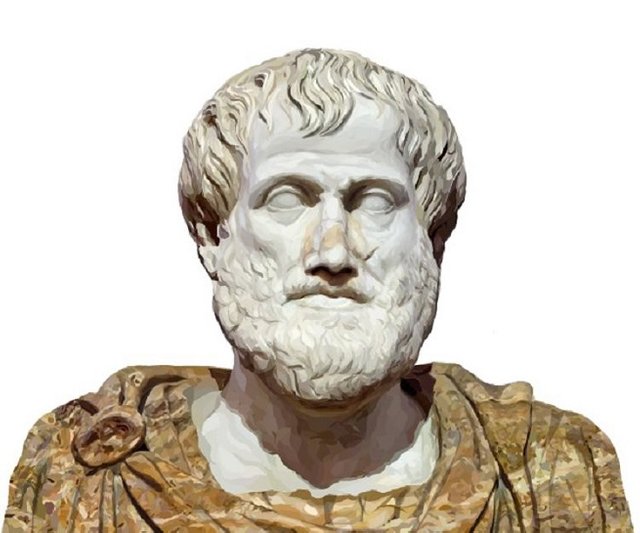Ancient philosophy. Life and creativity of Aristotle.
After Plato we will talk about a great systematizer for all of ancient Greek philosophy - Aristotle. For the life of Aristotle we know from Diogenes Laerts and Dionysius Kalikarnakas. Aristotle was born in Stagira (on the Chalcedon Peninsula) in 384 the same year that Demosthenes was born, with whom died in a year after having been politically living on two poles for a lifetime. Aristotle's father, Nicholas, was a courtier doctor of Macedonian king Amminta II, father of Philip II, he died early, so Aristotle was raised by Proxen's next relative. Aristotle was educated in a natural-scientific spirit, possessed many funds and properties. He had many slaves. He loved comforts. First of all, he had a rich library.
Seventy-year-old Aristotle went to Athens (367) at the Academy of Plato and remained there until his death in 347 AD. At the Academy he was the most prominent student. Sam Plato called him the "mind of the school", and because of his many reading he called his home (oikos anagnoston), a house of readers. The relationship between Plato and Aristotle has been the subject of the most striking anecdotes. Suppose Plato complained of Aristotle's attacks and called him "the horse that kicks his mother from which he sucks." He argued Aristotle once in the presence of the first Platonic disciples who quarreled with him and so insulted that Plato did not go to the Academy for three months, all of which are unlikely given the general respect Aristotle talked about Plato. It is preserved by him an epigram of philosophy and morality that bad people are not worthy of him, even to praise him.
But on the other hand, in principle they have encountered repeatedly. A passage from Aristotle's ethics is often cited, where he says: "Plato is my friend and I find it hard to criticize him, but the truth I'm a bigger friend and I can not keep it / amicus plato sed magis amisa veritas /. After Plato's death, Aristotle, along with Xenocrat, went to Asia Minor, the city of Noah Aternei in Moesia, to his classmate at Hermy Academy, who in the meantime became the governor. Soon, however, he was captured and killed by the Persians, and Aristotle, who married his niece, Litiada, went to live on the island of Mytilene. From the island of Mytilene he was called by Philip II as a tutor of Alexander. He stayed there for seven years, educating him in a heroic spirit with the help of the Iliad. Alexander, for the rest of his life, kept his piety to the philosopher, and he greatly helped his research through expeditions in the overwhelming vast lands. In 335, Aristotle came to Athens, and in the northeastern and outskirts of Lycea he founded his own school, known as the name of a name-name, which to this day is given to eminent private schools. The school was also called "Peripatetic" from its alleys and gardens. Aristotle was 12 years old.
Life was organized on board. Apart from scientific activities, they also gave art. Set up every 10 days of festivities in a particular program. The method of education was lecturing. In the morning Aristotle read strictly scientific lectures for regular students. In the evening he read lectures for a wider audience. Immediately after the death of Alexander the Macedonian, Aristotle had to leave Athens because the Macedonophobic stream peaked. They accused him of godlessness (allegedly in an anthem written by him), but they would only be a pretext for the hated macedonophile. He went to Chalkida on the island of Euboea. In the next 322 he died of a stomach ulcer.

This is useful thanks for posting
You are welcome :)
To listen to the audio version of this article click on the play image.

Brought to you by @tts. If you find it useful please consider upvoting this reply.